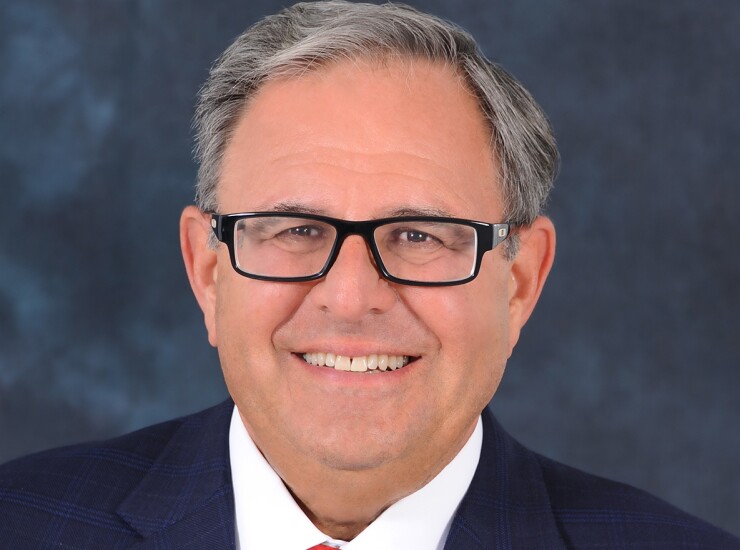Now the predominant originators and servicers of mortgage loans, nonbank lenders stepped in as the depositories dialed back their involvement in
Of the 25 largest originators and servicers last year, nonbanks originated and serviced about half of mortgage loans. This was a marked jump from 2009, in the aftermath of the financial crisis, when independent mortgage bankers were responsible for originating just 10% of mortgages and servicing just 6%, a December report from the
As a group, their profitability perked up in the third quarter, after a weak first half, driven by elevated refinance originations expected to continue into this year, a Moody's report added.
However, once
Founded in 1990, Mount Laurel, N.J.-based Freedom Mortgage is an independent mortgage banker that originates loans in all three production channels and also has a servicing portfolio. Its CEO is Stanley Middleman.
Below are excerpts from a discussion with Middleman at the MBA's annual convention in Austin, Texas. The questions and responses have been edited for clarity and length.

How is the current environment for independent mortgage bankers? Are your margins good, tight?
Our business is interest rate sensitive. It's good for originations. Interest rates are low, originations go up and we do a pretty good job of retaining our portfolio. So we're not experiencing real negativity based on the portfolio runoff.
I'm not unhappy with our margins, I'm not elated. One of the issues with margins in an inverted yield curve environment — which we just sort of came out of — is that it tends to make interest rate spreads lower, so it gets
Are you worried about a recession happening in the next year? Is housing now better able to withstand a recession?
Worried is probably not a good word. I think we're capable of having a recession. If interest rates stay low, it is less likely. But I would be surprised if we didn't have a recession at some point in the not-too-distant future, simply because it follows almost all the time after an inverted yield curve environment.
Last time we had a recession, we also had it accompanied by a value correction in assets,
Are you seeing more companies looking to be acquired?
I think we are on the verge of seeing more companies preparing to do something. But probably less so now in an environment with low interest rates where originators are doing well, the likelihood of them wanting to sell their business goes down. Doing
What about the wholesale business. We are starting to hear from certain folks involved in it about its revival. Are we seeing more growth in that channel?
We've seen some growth in wholesale and we will continue growth as loan officers come out of the retail business and
However, whether or not that's a real market that's sustainable over a long period of time and in a changing environment remains to be seen. The consumer wants to buy a loan like they buy everything else in an efficient way that is less expensive, that is more user friendly and that they manage themselves. As we move more towards that environment, eventually we will see a peaking of the wholesale business and it will turn the other way.
Are you concerned about data security? There has been a lot of talk lately about business email compromise schemes, which can affect all parties in the transaction.
Yes. It's a major area of focus for us. We are looking at it from defense, response and making sure that we're insured. You have to try and stop it from happening, respond to it quickly if it does happen, try and mitigate it and if all else, make sure you're insured to cover the losses.
We fight that fight every day [




